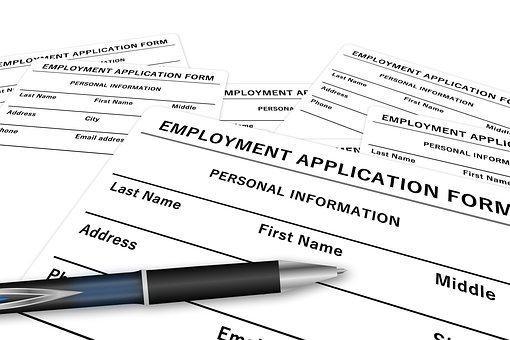What Shows Up on a Fingerprint Background Check?
Background checks are enormously important for both the employer and the candidate. These screenings ensure that the applicant is who they say they are, with the education, qualifications, and experience necessary to fulfill their desired role to the fullest extent.
Fingerprint background checks can be a part of this vetting process. Many sectors utilize them to screen for positions where a criminal background could cause concern.
In this guide, we will walk you through a fingerprint background check and the sort of information it reveals. We also address who is most likely to use it and some misconceptions regarding their conduct. Let’s get into it.
What Is a Fingerprint Background Check?
A fingerprint background check researches an individual’s criminal history; however, it can also reveal non-criminal biographic information, such as their full name or date of birth.
What Is the Purpose of a Fingerprint Background Check?
Fingerprint background checks are most often used as part of the screening process to check a candidate’s criminal background. Though it may reveal further information, an applicant’s criminal history is the primary motivator behind seeking this type of screening.
Many employers view these screenings as a more secure choice than other tactics. Many people may share a name, but no two people have the same fingerprint.
Fingerprint background checks were initially developed for use by law enforcement and criminal investigations, not for employment screening. Collecting a person’s fingerprints usually consist of ink-and-roll imprints or electronic fingerprinting, sometimes referred to as a live scan.
Nowadays, their use has increased outside the justice system. Employers will often use them in tandem with name searches in databases to verify a candidate is who they say they are.
What Does a Fingerprint Background Check Look For?
A fingerprint background check reveals previous criminal arrests, charges, and details relating to previous cases. Fingerprint screening can also include further information pertaining to the person’s birth, address, employment, vehicle accidents, insurance information, and full name.
These screening processes are often relevant for a criminal background check since law enforcement will take a person’s fingerprint following an arrest. Any time a person has their fingerprints taken, they will appear on a fingerprint background check.
Unlike other background check procedures, which a third party usually handles, fingerprint checks require the candidate to participate in the process actively. That way, the employer must make sure the prospective employee can provide fingerprints at the time of application.
Usually, the applicant goes down to a local police department, and they scan their fingerprints. This scan will then pull up any relevant criminal records, which the vetting organization will forward to the requesting employer or HR personnel.
A comprehensive list of what a fingerprint record will inform about a person is as follows:
- Name
- Aliases (if relevant)
- Residence
- Citizenship
- Place of birth
- Date of birth
- Sex
- Race
- Height
- Weight
- Eye color
- Hair color
- Social Security number
Fingerprint Background Check Misconceptions
Though fingerprint background checks have been in use for decades, some significant misconceptions still exist. We have clarified some of the critical fallacies so that you can know your rights and obligations, whether an employer or job applicant.
They Are Foolproof
All background check tactics have inherent and unavoidable weaknesses, and fingerprint background checks are no exception. A significant contributor to this is that not all arrests require the law enforcement officer to take fingerprints, meaning that they don’t always show up on a person’s criminal record.
Additionally, even if a fingerprint does appear in arrest records, there may not be any information indicating the case’s resolution. An employer may not be able to tell whether the result of the arrest was a conviction or dismissal.
They Are Only Relevant to Criminal Activity
There are two forms of fingerprint records, criminal and civil. Criminal fingerprints are usually taken upon arrest (though not always) and may be used after court disposition. They are stored in databases and may later be called upon by law enforcement for investigations or identity verification.
However, fingerprints may also go on record for civil purposes. It can be necessary for licensing requirements or other forms of state authorization, depending on your local laws.
Both criminal and civil fingerprint records will be under review during background screening. Even if you have never been involved in any illegal activity and have never been under arrest, you may still have fingerprint records.
Frequently Asked Questions
Do Companies Still Use Fingerprint Background Checks?
Yes, many companies still screen candidates using fingerprint background checks. These types of vetting are prevalent in industries where a candidate’s ethical conduct is critical, such as in some finance sectors, positions requiring security clearance, or jobs where an applicant would be responsible for someone vulnerable. In these instances, criminal history is especially relevant.
What Does Fingerprinting Show?
Fingerprints show criminal records, including arrests and dispositions, and are utilized for compiling criminal history reports, particularly for job applicants, such as those seeking positions with direct access to healthcare services through the Centers for Medicare & Medicaid Services (CMS) National Background Check Program (NBCP).
Conclusion
Background checks ensure the protection of everyone within a workplace, from employees to customers. They are a helpful tool that can add further vetting whenever a new candidate is under consideration for a job that requires additional security measures.
If you’re an employer seeking a trusted and reliable service for a criminal history background check, consider ScoutLogic. We thoroughly vet candidates, using multiple registries at the local and national levels to ensure that your new hire is the best one.
Contact ScoutLogic today for rigorous, in-depth screening services.
Download this free guide to go into the searching process prepared. This guide includes actionable steps to:
- Gather your requirements
- Determine vendors
- Check references
- Determine success metrics





